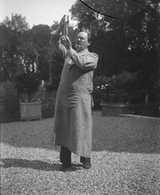
|
Science and Technology of the later Nineteenth Century: Zola and his Contemporaries CALL FOR PAPERS
Science and Technology of the later Nineteenth Century: Zola and his Contemporaries
International Conference (Paris, France) Thursday 22 January–Friday 23 January 2026 Venues: École Polytechnique (Palaiseau), École Normale Supérieure (Ulm)
We invite proposals for conference papers on all aspects of science et technology relative to Émile Zola, Naturalist thinkers and writers, and scientists of the second half of the nineteenth century. The colloquium works both within and beyond the borders of France. Internationally, scientists in this era engaged in experimental and theoretically in areas epistemological, ethical and political, pedagogical, and social. Scientific advances across the later nineteenth century had major impact(s) on society and culture. The reverberations of scientific and technological change shaped debates and discussion, enabled innovations, and sparked artistic, literary, and scientific controversies. Many of the interrogations of that era continue to resonate powerfully in our own age of accelerating scientific, technical, and technological change. The conference has four main axes: 1. Scientific memory: its history and its methods a. Scientific archives: philological, genetic, and cultural approaches to collections, manuscripts, typescripts, and epistolary sources b. Epistemological methods of the later nineteenth century and the cultures of technology: advertising, forms of popularisation, pedagogy, the press, world exhibitions; claims and counter-claims, deception and trickery (Zola), parodies of invention (Villiers de l’Isle Adam), alienation, and naivety (Flaubert). 2. Interdisciplinary approaches to the works of Zola and Naturalist writers. The focus here is on literary, artistic, documentary, and journalistic representations of science and technology: a. Fictions, myths, and visual representations of the writer as physician, scientist, polymath, and engineer b. The role of documenters, popularisers, encyclopaedic genetics and poetics (word-and-image representations of technical innovations; the integration of science in narrative fiction); experimental methods and the relations between doctrinal naturalism and naturalist fiction ; c. Technophilia / technophobia : values, debates, and controversies around ‘progress’ (political, aesthetic, moral). 3. The contemporary reception of scientific and technological heritage of Naturalist writers and scientific community of the second half of the nineteenth century: the posthuman, the digital machine, robotics, the postcolonial, European and global entanglements; gender; ethical and cultural challenges. This will allow us to draw out the connections, and also the breaks, between the past and the c20th and c21st, and establish fresh paradigms for understanding the contemporary history of science beyond analogies and symmetries. 4. The editing and interpreting of archives and the cultural legacy of science in the 21st century through the prism ofdigital technologies (semantic web, digital humanities, Text Encoding Initiative, Artificial Intelligence) and medical advances (genetics, cloning, transplant surgery) We invite proposals (max. 300 words) for papers of 20 minutes. Papers may be given in English or French. Please indicate 4–6 key words that capture your angle of approach to the conference topic. Proposals should be accompanied by a short bio-bibliographic profile. We also invite proposals for panels of 3–4 speakers including the lead proposer of the panel. Panel proposals, submitted by the panel lead, will comprise an overview and raison d'être of the panel together with the proposals of each speaker. Proposals, individual and panel, should be submitted by 20 June 2025 on https://sciencezola2026.sciencesconf.org Please address queries to Susan Harrow, Jean-Sébastien Macke ou Isabelle Schaffner : s.r.harrow@bristol.ac.uk ; jean-sebastien.macke@cnrs.fr; isabelle.schaffner@polytechnique.edu
The thematic scope of the colloquium includes (but it not restricted to) the following topic areas: Agricultural sciences Animal studies Artificial Intelligence (AI) Biology Botany Chemistry Civil engineering Commercialisation of science and technology Darwinism Data and information science Democracy Determinism(s) Digital humanities Dreyfus Affair Ecologies Energy science Entomology Epistemologies Ethics in science Feminisms and science Genetics and intergenerational transmission Geometry History of sciences Hydrology Informatics and Zola/his contemporaries Maritime science Mathematical sciences Mechanical engineering Medical sciences and life sciences Physics Physiologies and pathologies Popular understandings of science Parody, pastiche, and caricature Science and belief Science and gender Science and race/colonialism Science and the Republic Science and sexualities Scientific gaze World exhibition Zoology
Comité d’organisation / Organising Committee Olivier Bertrand, École polytechnique, IP Paris & CY Cergy Paris Université Susan Harrow, University of Bristol & Emile Zola Society Olivier Lumbroso, Université de la Sorbonne Nouvelle, DILTEC & ITEM-CNRS Jean-Sébastien Macke, Institut des Textes et Manuscrits Modernes, CNRS/ENS Chantal Morel, Émile Zola Society Isabelle Schaffner, École polytechnique, IP Paris, LinX & ITEM-CNRS
Comité scientifique / Advisory Committee Marie Dupond, Association François Guizot Elisabeth Emery, Montclair State University Céline Grenaud-Tostain, Université d'Évry-Val d'Essonne & ITEM-CNRS Emmylou Haffner, Institut des Textes et Manuscrits Modernes, CNRS/ENS Susan Harrow, University of Bristol & Émile Zola Society Olivier Lumbroso, Université de la Sorbonne Nouvelle, DILTEC & ITEM-CNRS Muriel Louâpre, Université Paris-Cité & CERILAC Jean-Sébastien Macke, Institut des Textes et Manuscrits Modernes, CNRS/ENS Chantal Morel, Émile Zola Society Isabelle Schaffner, École polytechnique, IP Paris, LinX & ITEM-CNRS Jacques Noiray, Sorbonne Université Alain Pagès, Université de la Sorbonne Nouvelle, CRP19 & ITEM-CNRS Nicholas White, University of Cambridge Illustration photo credit : © Ministère de la Culture (France), Médiathèque du patrimoine et de la photographie, fonds Zola, diffusion GrandPalaisRmn Photo |
 This international literary and multidisciplinary Conference on science and technology in the era of Émile Zola is organised by the École Polytechnique, the Émile Zola Society (London), and the Centre d’étude sur Zola et le Naturalisme (ITEM CNRS/ENS-PSL).
This international literary and multidisciplinary Conference on science and technology in the era of Émile Zola is organised by the École Polytechnique, the Émile Zola Society (London), and the Centre d’étude sur Zola et le Naturalisme (ITEM CNRS/ENS-PSL). 
